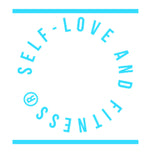
The Appeal of a Smaller Social Circle: Quality Over Quantity
In today's hyper-connected world, the idea of having a vast social network is often celebrated. Social media platforms encourage us to amass friends and followers, and our culture frequently equates social success with the breadth of our social connections. However, there is a growing trend toward embracing smaller, more intimate social circles. Here are some compelling reasons why many people prefer to keep their social circles tight-knit.
Besides, if someone is happy with "how" they are prioritizing their lives and each aspect of it: what business is it of anyone else's? Are they simply uncomfortable with those who have different brain structures?
Some people are just more self-reliant and need fewer people to be happy.
Quality of Relationships:
One of the primary reasons people prefer smaller social circles is the emphasis on quality over quantity (weeding out the users). Deep, meaningful relationships often require time and emotional investment, which is difficult to achieve with a large group of friends.
Smaller circles allow individuals to cultivate stronger, more genuine connections. Friends in these tighter groups are often more supportive and understanding, providing a greater sense of belonging and security.
Time Constraints:
Modern life is increasingly busy, with work, family, and personal obligations consuming much of our time.
Juggling multiple connections and friendships can become overwhelming and stressful.
***With limited hours in the day, many people find it more fulfilling to dedicate their time to a few close connections friends rather than spreading themselves too thin.***
This focused approach allows for more meaningful interactions and reduces the pressure of trying to keep up with a large network.
Wellness-time intruders who know you have multiple jobs (by choice) and a disability are demonstrating taker-one-sided-leech tendencies, keep your filter high and know that proximity/convenience doesn't warrant automatic intimacy. It's a choice, no choice-violators allowed. 🔥
Choosing to designate certain times in our lives as off-limits is a choice we make consciously and aligning our mental health is not going to cause us to miss out on anything meant for us or "offend" anyone who views us as humans with minds, rights, choices, and lives.
Mental Bandwidth:
Managing a large social circle requires significant mental energy, which isn't possible with a disability. Remembering details about many different people, staying engaged in their lives, and maintaining regular communication can be mentally exhausting. For those who prioritize mental well-being, a smaller social circle can provide relief. It allows for better emotional management and prevents the burnout that can come from trying to maintain too many relationships.
Emotional Intimacy:
Emotional intimacy thrives in smaller settings, rather than surface-level and convenience-based connections who are just there to use each other for their agendas.
Sharing personal thoughts, feelings, and experiences is often easier and more comfortable with a few trusted friends.
Larger groups can sometimes feel impersonal or judgmental, making it harder to open up. In smaller circles, there is usually a higher level of trust and understanding, which fosters deeper emotional connections.
Reduced Drama and Conflict:
Larger social groups can sometimes lead to increased drama and conflict. Misunderstandings and personality clashes are more likely to occur in bigger circles, causing stress and discomfort. Smaller groups tend to be more harmonious, as the individuals involved are often more compatible and willing to resolve issues amicably. This can lead to a more peaceful and enjoyable social life.
Aligned Interests and Values:
Smaller social circles often consist of individuals with more aligned interests and values. This alignment makes spending time together more enjoyable and fulfilling, as there is a greater likelihood of shared activities and meaningful conversations. In contrast, larger groups may have diverse interests, making it challenging to find common ground.
Greater Flexibility:
Coordinating schedules and planning activities is simpler with fewer people. Smaller groups can be more spontaneous and flexible, leading to more frequent and enjoyable get-togethers. This ease of planning can enhance the overall social experience, making it less of a chore and more of a pleasure.
The preference for smaller social circles is a reflection of the desire for deeper, more meaningful relationships in an increasingly complex world.
While having a large network can be beneficial in certain contexts, many find that a close-knit group of friends provides greater emotional support, reduces stress, and enriches their lives in more profound ways.
Ultimately, the choice between a large and small social circle comes down to personal choice and personal priorities and the kind of non-forced social interactions that bring the most joy and fulfillment.
I wouldn't be friends with someone who has a job, a side-hustle, and a disability to manage if you expect a lot of IRL time, I like people who are capable of having full-on conversations over text and emotional bonds that stand the test of time and geography. Small circle. ✅
I may have less hours within which to live my life because I'm choosing to work multiple lanes with a severe disability, but my quality of life is far higher and that's a choice that I made.
Peace is coming home to yourself and not chasing fleeting approval and validation. Very freeing. Very liberating. A much more joyful way to ensure your essence and authenticity isn't compromised. Define yourself, forget how they "view you" as long as you're happy and healthy.
